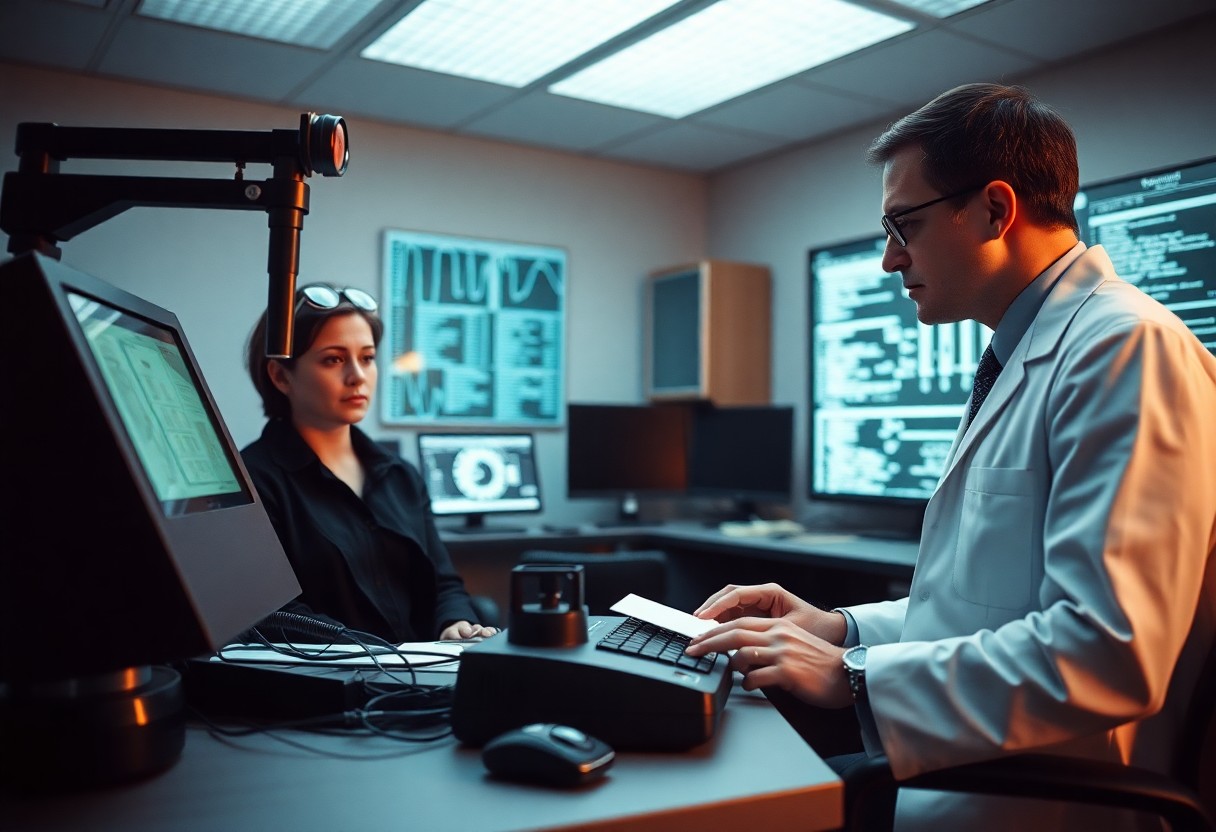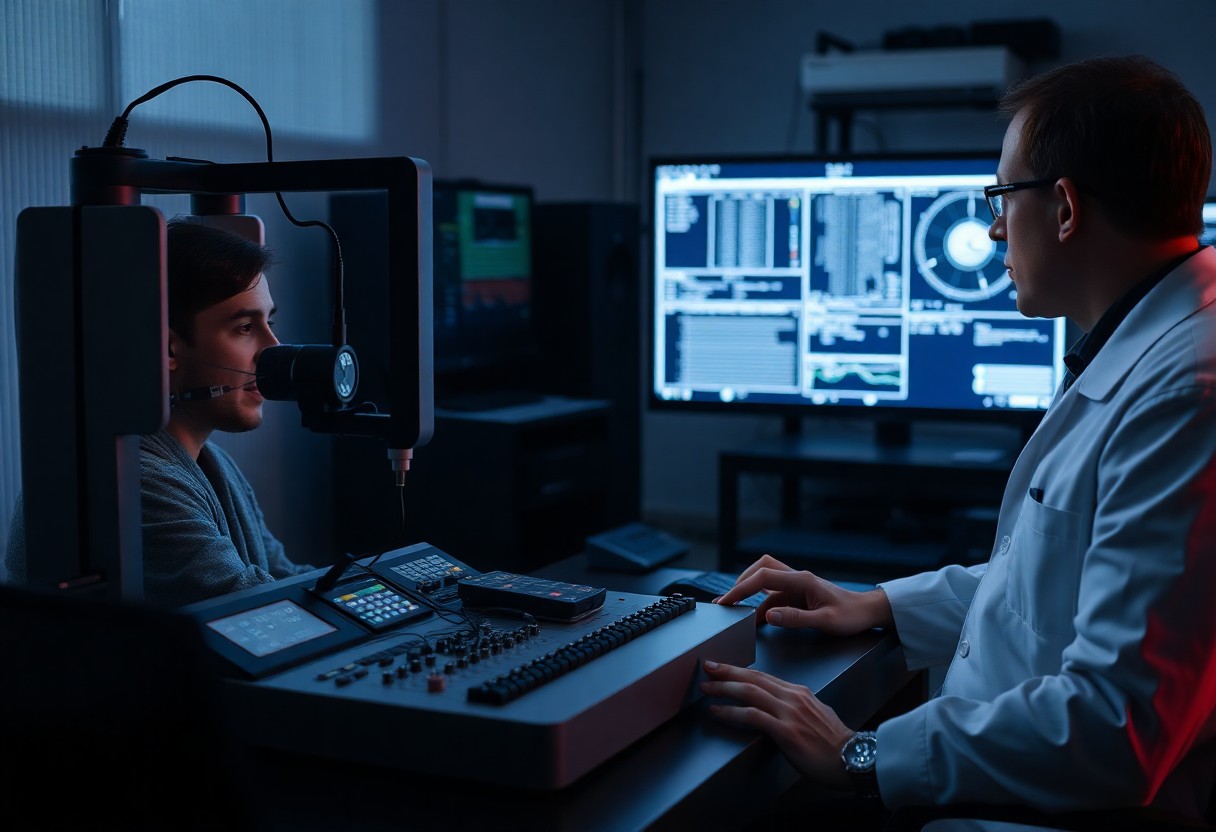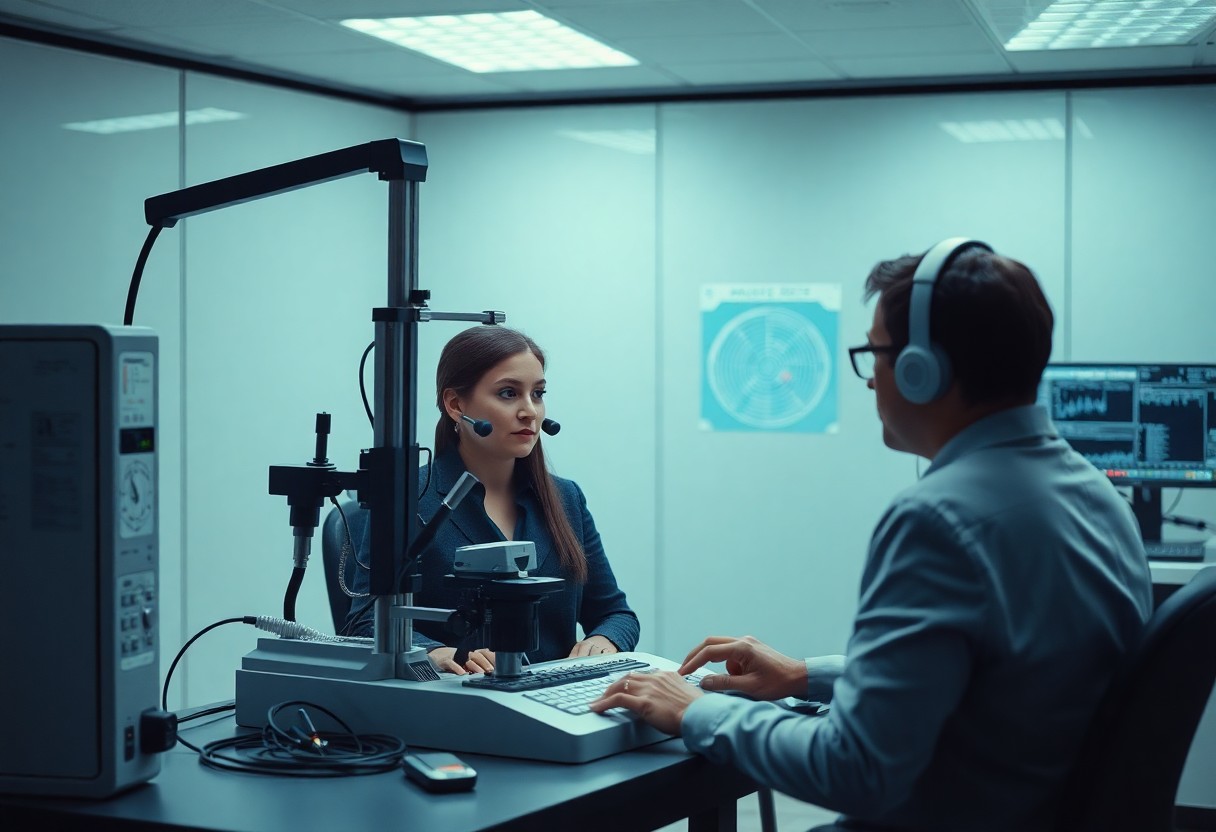
With the rise of deception in communication, understanding how to conduct a successful lie detector test is crucial for anyone seeking to uncover the truth. This blog post will guide you through key steps and techniques that can enhance the accuracy of your test while ensuring a professional approach. By arming yourself with knowledge and maintaining a calm demeanor, you can significantly increase your chances of detecting dishonesty, thereby fostering a more transparent environment in your interactions.
Key Takeaways:
- Preparation: Properly set up the environment and ensure all equipment is calibrated for accurate results.
- Question Formulation: Develop clear, relevant, and concise questions to avoid confusion and improve the reliability of the test.
- Interrogation Techniques: Use effective communication strategies to create a comfortable atmosphere, encouraging honesty during the test.
Understanding Lie Detector Tests
To effectively assess honesty, it’s vital for you to grasp the fundamentals of lie detector tests. These tools aim to measure physiological responses that correlate with deceptive behavior, helping investigators decipher truth from lies. By recognizing how these devices function, you can enhance your skills in interpreting results and applying them in appropriate contexts.
History and Development
By tracing the evolution of lie detector tests, you can appreciate their roots dating back to the early 20th century. Initially developed for law enforcement, these instruments have evolved significantly, incorporating advancements in technology and improved methodologies. Today, various types of polygraphs and biometric tools are employed in numerous fields beyond criminal justice, including employment screenings and security assessments.
How Lie Detectors Work
Besides measuring changes in physiological indicators such as heart rate, blood pressure, and respiration, lie detectors also rely on your emotional and psychological state. These variations are recorded during a controlled questioning process, which compares responses to establish a baseline for honesty.
But understanding the science behind these instruments is vital for accurate interpretation. The polygraph measures autonomic responses triggered by stress or anxiety that often accompany deception. During the examination, specific questions are posed, and your body’s reactions are monitored. If your physiological responses significantly deviate from established norms, it may indicate deception. However, lying is just one factor; other emotional states such as fear or excitement can also influence your results, emphasizing the importance of contextual analysis in the evaluation process.
Preparing for a Lie Detector Test
Clearly, a successful lie detector test hinges on thorough preparation. You’ll benefit from understanding the process and aligning your mindset with the test’s requirements. Familiarizing yourself with techniques in Deciphering Deception: Insights from Human Lie Detectors can enhance your approach and set realistic expectations for the day of the test.
Selecting a Qualified Examiner
Test the waters by ensuring you select a highly qualified examiner. Look for verifiable credentials and significant experience in administering lie detector tests, as this ensures the legitimacy of results and the reliability of your experience.
Pre-Test Procedures
Beside choosing the right examiner, you must adhere to specific pre-test procedures. These typically include discussions about the test format, addressing your concerns, and revealing the questions that will be asked. Establishing a clear understanding of what to expect can significantly reduce anxiety, allowing you to perform at your best.
Indeed, adhering to pre-test procedures is imperative for a smooth testing experience. During the initial meeting, you should expect to engage in a comprehensive orientation about the test. This includes a detailed explanation of the questions and the methodology used to assess your responses. It’s advisable to remain calm and ask any questions you may have about the process to alleviate uncertainty. The more informed you are, the better you’ll be able to navigate the situation, which can ultimately impact the accuracy of the results.
The Test Process
Now that you understand the importance of a lie detector test, it’s time to familiarize yourself with the test process. This procedure involves preparation, calibration of the polygraph equipment, and the actual questioning phase. A skilled examiner guides you through each step, ensuring that you are comfortable and informed, which lays the foundation for a successful outcome. The integrity of the results relies heavily on the professionalism of the examiner as well as your cooperation during the test.
What to Expect During the Test
On the day of your lie detector test, you can expect a calm environment where the examiner will explain the entire process, answering any questions you may have. They will attach sensors to your body to monitor physiological responses such as heart rate, blood pressure, and respiration. You will then be asked a series of questions, starting with baseline queries, aimed at establishing your normal physiological responses, before moving on to the relevant questions about the matter at hand.
Techniques for Accurate Results
Among the various methods employed to ensure accurate results during a lie detector test, maintaining a relaxed atmosphere and utilizing effective questioning techniques plays a fundamental role. Skilled examiners often adopt a conversational approach to help you feel more at ease, which enhances the reliability of your physiological responses.
A comfortable environment is necessary during the test, as it helps reduce anxiety, leading to more natural physiological readings. Additionally, expert examiners implement techniques such as relevant and control question comparison, where they strategically incorporate questions to assess your honesty levels. They also ensure that you fully comprehend each question to prevent any misinterpretation, which could skew results. The ability to gauge your physiological changes accurately hinges on these tactics, ultimately contributing to the test’s reliability and validity.
Interpreting Results
Unlike other assessments, interpreting the results of a lie detector test requires a nuanced understanding of physiological responses and behavioral cues. The test measures variations in heart rate, blood pressure, and respiration, but these indicators must be evaluated in context. It’s imperative to consider the individual’s baseline levels and emotional state for accurate interpretation. Misinterpretations can lead to incorrect conclusions about honesty, so a careful review is vital.
Analyzing Data and Responses
Data gathered during the lie detector test encompasses various physiological measures like heart rate, pulse, and breathing patterns. You’ll need to compare these results against the pre-established baseline to identify significant deviations. High stress or excitement can affect results, making it imperative to approach the analysis with a comprehensive understanding of the person being tested.
Factors That Affect Accuracy
For accurate results, several factors can influence the performance of a lie detector test:
- Subject’s emotional state
- Physical health conditions
- Medications
- Test environment
Assume that any deviation within these factors could lead to misleading outcomes and misinterpretations.
Due to the complex interplay of factors affecting the accuracy of lie detector tests, it’s imperative to understand how each can skew results. For example, high levels of anxiety may generate false positives, while some medications can dampen physiological responses. Additionally, certain physical health conditions may influence your body’s stress responses. Thus, a comprehensive understanding of these influencers helps in correctly assessing the results. Assume that the more variables you take into account, the more reliable your test outcome will be.

Common Misconceptions
Not all lie detector tests are foolproof. Many people mistakenly believe that polygraphs are 100% accurate in determining whether someone is lying. In reality, various factors can influence the results, as explained in detail in this resource about How Does A Polygraph Test Work?. It’s vital to approach polygraph results with a critical mindset.
Myths Surrounding Lie Detection
Against popular belief, polygraph tests do not directly measure lies but rather changes in physiological responses. This means that many factors, such as stress or anxiety, can trigger a reaction without any dishonesty being involved. Therefore, interpreting the data from a polygraph requires careful analysis by trained professionals.
Realities of Test Limitations
Test limitations are significant when considering the reliability of lie detector assessments. Results can be affected by emotional states, medical conditions, and even the interrogator’s skill level. This unpredictability can lead to false positives or negatives, which can have serious consequences. You should be well-informed about these limitations before relying on polygraph results to make critical decisions.
Plus, understanding the limitations of polygraph tests entails recognizing the psychological factors that may skew results. Individuals who are nervous may show physiological signs consistent with deception, even when being truthful. This variability complicates accuracy and highlights the dangerous assumption that a polygraph can definitively determine honesty. While polygraphs can provide insights, they are not an infallible record of truth, and relying solely on them could have severe implications on your judgment.

Legal and Ethical Considerations
Once again, it’s vital to consider the legal and ethical implications surrounding lie detector tests. These assessments are often debated within legal frameworks, and jurisdictions may have varying laws regarding their admissibility. It is important for you to educate yourself on local regulations and ethical guidelines, especially if you’re using them for critical decision-making. For a deeper understanding, visit Deception Detection | How to Tell If Someone is Lying.
Use of Lie Detectors in Legal Settings
Across many legal systems, the use of lie detectors can play a significant role in investigations. They are often employed to assist law enforcement in narrowing down suspects or validating witness statements. While their results may not be fully admissible in court, they can still provide valuable insights, contributing to the overall understanding of a case.
Privacy Concerns and Consent
Behind every lie detector test lies the critical issue of privacy. You must ensure that participants provide informed consent before undergoing a polygraph examination. This consent should clearly outline how their data will be used and the potential consequences of the results. Maintaining respect for your subjects’ privacy is not just ethical; it builds trust and fosters a more transparent process.
For instance, obtaining consent involves clearly explaining the procedure, how results will be interpreted, and whom the findings will be shared with. A lack of transparency may lead to feelings of violated privacy and potential psychological harm, undermining the credibility of your findings. Moreover, ethical considerations can include how results might affect the mental well-being of participants, emphasizing the importance of placing their welfare at the forefront of your testing process.
Final Words
Drawing together the insights from ‘Unveiling Deception – Steps To Conducting A Successful Lie Detector Test’, you are now equipped with the knowledge to approach lie detection with confidence. By understanding the importance of preparation, selecting the right equipment, and ensuring a suitable environment, you enhance your ability to gather accurate results. Trust your instincts, follow the outlined steps, and maintain professionalism throughout the process, allowing you to effectively discern the truth without bias. With this knowledge in hand, you can confidently navigate the complexities of lie detection in various situations.
FAQ
Q: What are the key steps in preparing for a lie detector test?
A: Preparing for a lie detector test involves several important steps. First, select a certified professional who is experienced in polygraph testing. Next, ensure that the environment is stress-free and comfortable for the individual being tested, as anxiety can affect the results. It is also beneficial to review the questions that will be asked during the test, allowing the individual to feel more at ease with the process. Finally, ensure that the individual understands how the lie detector works and what to expect during the procedure to alleviate any misconceptions or fears.
Q: How does a lie detector test determine if someone is being truthful?
A: A lie detector test, or polygraph, measures physiological responses to questions, including heart rate, blood pressure, breathing patterns, and skin conductivity. When a person answers questions, the polygraph records these bodily responses. If there is a significant change in these measurements when responding to specific questions, it may indicate the person is experiencing stress or anxiety, which can correlate with deception. However, it’s important to note that the results should be interpreted by a trained professional, as various factors can influence physiological responses.
Q: What should an individual do if they believe they may fail a lie detector test?
A: If an individual is concerned about failing a lie detector test, it can be beneficial to engage in honest self-reflection before the examination. Addressing any underlying issues or uncertainties regarding the truthfulness of one’s answers can help mitigate anxiety. Additionally, discussing worries with a therapist or a trusted advisor can provide support and clarity. Practicing relaxation techniques, such as deep breathing or meditation, can also help calm nerves prior to the test. Finally, it’s crucial to approach the situation with honesty, as truthfulness can alleviate much of the stress surrounding the test.
